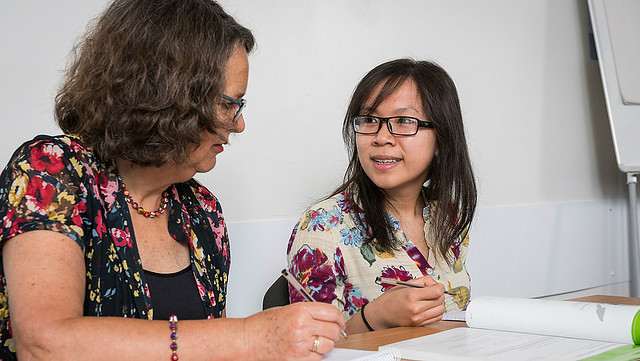Identifying your development needs
Deciding on how best to achieve a balanced mix of professional development skills can be difficult given the diversity of development opportunities. This section helps provide you with a structured approach.
Researcher development at the University of Bath is aligned to a professional development framework called the Researcher Development Framework (RDF). This industry standard framework has been developed by Vitae in partnership with researchers, funders and employers.
We strongly recommend that you familiarise yourself with the RDF. A good starting point is conducting a training needs analysis using the RDF Self-Assessment Tool. This will enable you to assess the skills and knowledge you are going to need at different stages of your doctorate against your current abilities. You may want discuss this with your supervisor(s) during your first few meetings as they may be able to help you to identify additional development needs.
It’s important that you periodically review your professional development needs and include this in meetings with your supervisor(s). When reviewing your progress, bear in mind that there are many ways of learning that are not always obvious. Establish your development needs, then discuss with your supervisor (and others) the best way to achieve them.
The Careers Service offers support to doctoral students, with suggested career development activities for each stage of the doctorate, and also extensive information on career options for researchers.
You are responsible, with the help of your supervisor, to manage your professional development during your doctorate.
Identifying development opportunities
Through MyDoctoralDevelopment, we offer a range of both online learning and face-to-face workshops, as well as online learning resources to support your professional development during your doctorate. This is intended to compliment development activities that are provided to you through your department, faculty or doctoral training centre.
Professional development is more than just training and here are just some examples of the diverse range of development activities that could be considered under professional development.
- Drafting abstracts and manuscripts for conferences and journals
- Attending conferences and networking with other researchers
- Collaborating with researchers from other disciplines or institutions
- Giving a research talk or producing and presenting a research poster
- Developing literacy and information searching skills by consulting your departmental librarian
- Developing IT skills
- Improving your writing and communication skills at the Skills Centre
- Undertaking teaching activities
- Supervising project students
- Getting involved with student representation and university committees
- Applying for funding, for example travel funding for conferences or research visits
- Exploring opportunities for commercialising your research
- Taking part in the annual Three Minute Thesis Competition
- Volunteering
- Taking part in public engagement activities
- Using social media such as twitter to promote or facilitate your research
- Starting a personal blog
- Taking part in festivals, such as Bath Taps into Science
- Learning a foreign language
Recording your development
Remember to keep a record of the activities or tasks you have undertaken and how they have contributed to your professional development. Remember, these don’t have to be just formal training workshops or courses. Certain academic milestones require you to provide a record of your professional development so it's good to get into a good routine recording your development activities.
How much time should I spend on professional development?
All researchers, whether students or staff, are expected to build up a broad range of skills as part of their professional development and manage this process alongside their research work.
The University has set out an indication of how much time doctoral students should plan to spend on skills development each year. The University of Bath QA Code of Practice (QA7, Section 9.7) states:
Doctoral students are expected to engage in the equivalent of at least 10 days of skills development activities per year (pro-rated for part time students i.e. 5 days for 0.5 FTE).
It may be difficult to monitor exactly how much time you spend on developing transferable skills, especially as many of these will be gained in the course of your day-to-day research activities.
Rather than just focusing on the number of days, we recommend that you think more about the process of professional development and about what you hope to achieve. This will help you to develop your skills and knowledge in the right areas.
You can do this by:
- understanding the required skills necessary to do your research and complete your doctorate on time
- planning and undertaking activities to develop or enhance these skills
- recording and reflecting on these activities
- evidencing these skills as part of your wider career development
